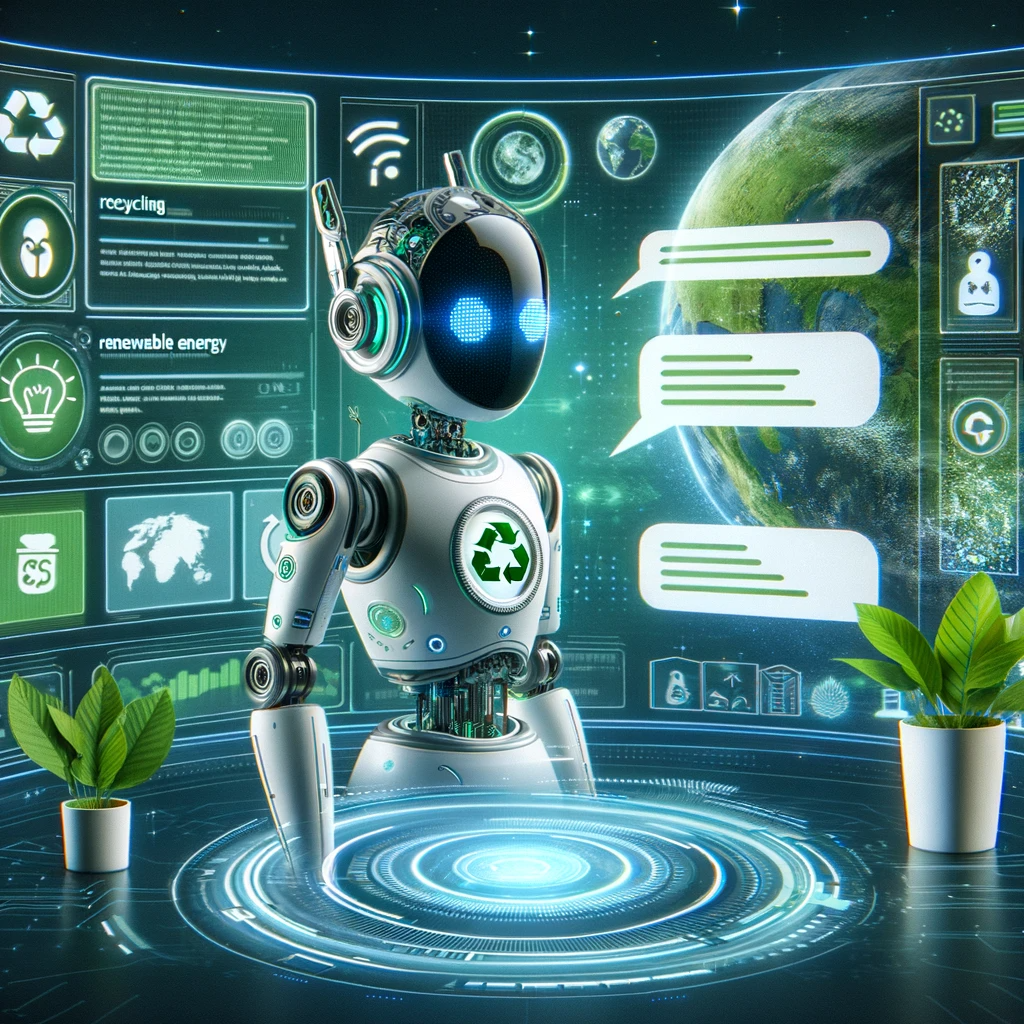The environmental challenges our planet faces are becoming increasingly urgent. From climate change to biodiversity loss and resource depletion, addressing these issues requires innovative solutions. Artificial Intelligence (AI) is emerging as a powerful tool to tackle environmental problems head-on. In this blog post, we will explore how AI can improve the environment and contribute to a more sustainable future.
- Climate Change Mitigation
One of the most pressing environmental concerns is climate change. AI can play a significant role in mitigating its effects:
a. Energy Efficiency: AI-driven algorithms can optimize energy consumption in buildings, industries, and transportation. Smart grids and AI-enabled sensors can help reduce energy waste and increase the integration of renewable energy sources.
b. Climate Modeling: AI can improve climate modeling and prediction accuracy, allowing us to better understand and prepare for extreme weather events and long-term climate shifts.
c. Carbon Capture and Storage: AI-powered systems can enhance carbon capture and storage technologies, which are critical for reducing greenhouse gas emissions from industrial processes.
- Conservation and Biodiversity
AI can aid in the preservation of biodiversity and endangered species:
a. Monitoring Wildlife: AI-based camera traps and drones can monitor wildlife populations, track animal movements, and detect illegal poaching activities in real time.
b. Habitat Restoration: AI algorithms can assist in identifying optimal locations for habitat restoration and reforestation efforts, maximizing their impact on ecosystem health.
c. Predicting Disease Outbreaks: AI can analyze environmental data to predict disease outbreaks among wildlife, helping conservationists take proactive measures to prevent epidemics.
- Sustainable Agriculture
AI has the potential to revolutionize agriculture and make it more sustainable:
a. Precision Agriculture: AI can optimize crop management by analyzing data from sensors, drones, and satellites. This enables farmers to reduce water usage, minimize pesticide application, and increase crop yields.
b. Pest and Disease Detection: AI-driven image recognition systems can quickly identify pests and diseases in crops, allowing for early intervention and reduced chemical use.
c. Soil Health Assessment: AI can assess soil health and recommend appropriate treatments to improve soil fertility and reduce the need for chemical fertilizers.
- Waste Reduction
AI can help reduce waste and promote recycling:
a. Smart Waste Management: AI-powered sensors can optimize waste collection routes, reducing fuel consumption and emissions from garbage trucks.
b. Recycling Sorting: AI robots and computer vision systems can sort recyclables more efficiently at recycling facilities, increasing recycling rates.
c. Circular Economy: AI can facilitate the transition to a circular economy by optimizing product design, manufacturing processes, and recycling systems.
- Environmental Monitoring and Data Analysis
AI can analyze vast amounts of environmental data to provide valuable insights:
a. Air and Water Quality: AI can monitor air and water quality in real time, helping identify pollution sources and improving public health.
b. Ecosystem Health: AI can analyze data from remote sensors and satellites to assess the health of ecosystems, detect changes in biodiversity, and predict environmental crises.
Artificial Intelligence is a powerful ally in the fight to improve the environment and create a more sustainable future. Its capabilities in optimizing energy use, conserving biodiversity, promoting sustainable agriculture, reducing waste, and analyzing environmental data offer innovative solutions to some of the most critical challenges our planet faces. By harnessing the potential of AI and combining it with collaborative efforts, we can make significant strides towards protecting and preserving the environment for generations to come. AI for the environment isn’t just a technological advancement; it’s a path toward a greener and more sustainable world.








